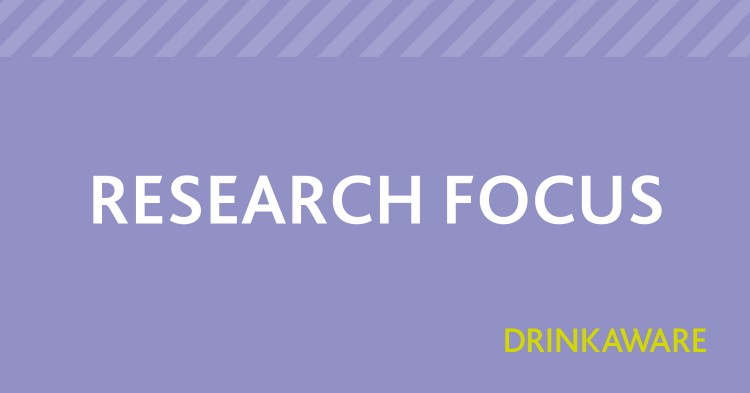Pre-COVID 19 alcohol consumption in the home setting had become the ‘norm’ with 61% of all drinking occasions taking place within the home in Ireland (Drinkaware Index, 2019). In addition, high levels of binge drinking had been reported (WHO, 2018). Complacent and complicit over-consumption of alcohol among Irish adults were identified in our Drinkaware Index (2019) with 75% reporting that drinking to excess was ‘just part of Irish culture.’ To further explore the views and experiences of at-home drinking and binge drinking at home, we undertook a research project in late 2019 with support from Amárach Research. A series of focus group discussions were conducted with a sample of Irish adults (n=39). The findings provide an extensive suite of qualitative data on Irish adults’ experiences of at-home drinking and their intentions surrounding such.
Drinking at home is an established, acceptable and attractive norm and as one participant commented, ‘staying in is the new norm’. The findings also provide vital learnings into specific gaps in knowledge on binge drinking and alcohol misuse among a sample of Irish adults. We found that most participants do not set out to drink excessively while at home. However, many are unknowingly consuming more than intended when drinking at home as they are unaware of standard drink measures, HSE low-risk weekly guidelines and binge drinking. The spectrum of at-risk drinking (WHO, 2001) – from low risk to hazardous, harmful and dependent – does not register and consequently, such drinking behaviours are normalised regardless of whether they contravene guidelines or definitions of what at-risk drinking is.
The findings are also even more important in the context of current pandemic. Little did we think that we would be reporting on this study at a time when the issue of at-home drinking and human behaviour would be more prominent than ever due to COVID-19 and the social and physical distancing measures introduced by the Irish Government and across the globe. Enormous changes to the lives of people worldwide are taking place and the urgency of research on the social practice of drinking in the home has never been greater (Callinan & MacLean, 2020).
The results thus provide a valuable baseline context against which current COVID-19 drinking at-home data can be viewed because it acts as a precursor to the expectation that this trend has increased since lockdown. Early research results give an indication of drinking habits that may be starting to form and changes to the way we drink that are happening in the short term. In April 2020 we conducted our annual national survey, the Alcohol and COVID-19 Barometer in collaboration with Behaviour and Attitudes. 25% of Irish adults said that they are drinking more since COVID-19. Further corroboration of behaviour change regarding alcohol consumption is evident in other recent findings both in Ireland e.g. CSO Social Impact Study and internationally e.g. Alcohol Change UK, with many more studies ongoing.
Collectively the empirical evidence gathered will be crucial to understanding the mindset of Irish adults’ at-home drinking prior to the current COVID-19 crisis as well as providing data on how it may be better managed post-crisis.
References
Alcohol Change UK (2020) Drinking during lockdown: headline findings. https://alcoholchange.org.uk/blog/2020/covid19-drinking-during-lockdown-headline-findings
Babor et al. (2001). AUDIT; The Alcohol Use Disorders Identification Test: Guidelines for use in primary care. Second Edition. World Health Organisation: Department of Mental Health and Substance Dependence.
Callinan, S. & S. MacLean (2020) COVID-19 makes a stronger research focus on home drinking more important than ever. Drug and Alcohol Review, DOI 10.1111/dar.13125. https://onlinelibrary.wiley.com/doi/10.1111/dar.13125
Central Statistics Office (CSO) (2020) Social Impact of COVID-19 Survey, April 2020. https://www.cso.ie/en/releasesandpublications/ep/p-sic19/socialimpactofcovid-19surveyapril2020/
Drinkaware (2020) Understanding (intentional/unintentional) binge drinking at home. Dublin: Drinkaware.
Drinkaware (2019) Drinkware Index 2019: Analysing Hazardous Drinking in Ireland. Dublin: Drinkaware. http://drinkaware.ie/research/drinkaware-research-reports/drinkaware-research-report-understanding-binge-drinking-at-home-in-ireland-2020/
Drinkaware (2020) https://www.drinkaware.ie/latest/one-quarter-of-irish-adults-drinking-more-during-covid-19-14-drinking-4-times-a-week-new-drinkaware-ba-research
WHO (2018) Global status report on alcohol and health 2018. Geneva: World Health Organisation. https://www.who.int/substance_abuse/publications/global_alcohol_report/en/


